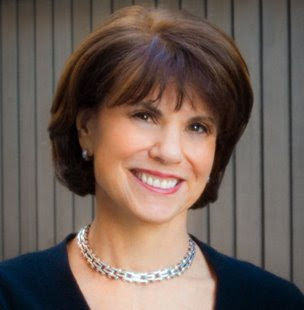The speech was drafted by Ben Rhodes, a 31-year-old White House speechwriter who has specialized in foreign affairs, and reflected consultations with several outside experts on Islam and the region. Aides say Mr. Obama rewrote sections of the address. In its rhetorical style and breadth, the speech was reminiscent of Mr. Obama's address on race during the presidential campaign last year.(Blogger Archbishop Cranmer posts a link to Rhodes pre-speech briefing for the press in Saudi Arabia, here) And who is Ben Rhodes? The Oracle of Google tells us he used to work for Congressman Lee Hamilton on the 9/11 Commission:
About Benjamin RhodesHere's a link to Carol Lee's May 19 profile on Politico.com:
Ben Rhodes has been the Special Assistant to President Lee H. Hamilton at the Woodrow Wilson International Center for Scholars since June 2002, and is also a freelance speechwriter based in Washington, D.C. He worked closely with President Hamilton through his tenure as Vice-Chair of the National Commission on Terrorist Attacks Upon the United States (the 9/11 Commission), focusing particularly on policy recommendations and process matters. He is the author, with Hamilton and Thomas H. Kean, of Without Precedent: The Inside Story of the 9/11 Commission, forthcoming from Knopf in August 2006. Previously, he taught and worked in local politics in New York City.
Rhodes fits in well with the Obama team. On the flight home from Europe, Obama led his staff in giving him a round of applause. And when The Economist published the speech Obama delivered in Prague, the president told his personal assistant to make sure Rhodes got an autographed copy of the magazine.Here's a link to what Rhodes himself had to say about 9/11 in a 2007 article found on the Project for a Secure America website:
“He really understands the president’s voice,” said Axelrod. “They’ve got a great mind-meld on these issues.”
Part of the reason for that is in a framed photograph Rhodes keeps in his office: There’s Rhodes, McDonough, Obama and former Rep. Lee Hamilton, one of the Democratic Party’s top foreign policy figures, in August 2007.
Rhodes had just earned a master’s degree in fiction writing from New York University when he was offered a job as a writer for Hamilton in 2002. A Manhattan native, Rhodes went on to write the Iraq Study Group Report and help draft policy recommendations for the 9/11 Commission, which Hamilton co-chaired.
Rhodes keeps in regular contact with Hamilton, who said Obama has thanked him “for making Ben available.”
Rhodes said Hamilton still reviews Obama’s major foreign policy addresses.
“We run most of the big foreign policy speeches by him,” he said. “Just kind of like, ‘What do you think of this?’”
9/11 has brought with it some new terminology, most notably “war on terror” which has taken a tendency to make war on nouns (prominently, “poverty” and “drugs”), and shifted it to making war on a tactic. Now we have “Islamofascist” - too young to have a dictionary definition, but prominent enough to merit mention by the President (and a wikipedia definition).Hey, Ben...when I lived in Moscow in 2004-2005, they showed programs on TV about the Soviet role in Vietnam. They still do, including a Russia Today interview with the Soviet army veteran who said he shot down John McCain from December, 2008:
Islamofascism represents a bunch of things, including linking the fight against terrorism to the fight against Hitler. The Hitler thing is a little strange, but pretty clearly represents a desire to recall the victory of WWII and to cast those who disagree with tactics in the war on terror as appeasers. Beyond their both being violent and hating Jews, I’m at a bit of a loss on equating a stateless terrorist network to the Third Reich, particularly since there cannot be any clear “victory” - any occupation of Berlin or Japanese surrender - against people who have no capitol or sign no surrender agreements. But that’s a topic for another day…
The more dangerous part, I think, is conflating groups with different aims. What do the Iranian government, Hizbollah, Hamas, al Qaeda, the Sunni insurgency in Iraq, and Islanmist movements from Indonesia to Kashmir to Chechnya to London have in common? A lot less than we’re making them out to have in common if we slap a big old “Islamofascist” label on them. They may all be bad, but you don’t approach a nationalist or separatist movement in the same way that you approach an apocalyptic jihadist movement (and certainly not a government). And the argument doesn’t even hold that they are all adherents to the same ideology of radical Islam - one need only look at Iraq to know that Iran’s ayatollahs don’t march in lockstep with Sunni terrorists.
Much more could be said about this, but the bottom line is conflation hasn’t served us that well. Whether it was “al Qaeda and Iraq” or the “axis of evil” - what made for simplifying, rousing, and self-congratulatory rhetoric has translated awkwardly into policy. And this is not just a habit of this Administration or this conflict. You could go back a little farther and find that conflating a Vietnamese nationalist movement with Soviet imperialism was a stretch as well.
A retired Red Army Lieutenant who fought in Vietnam has confessed to shooting down the plane of defeated presidential candidate, John McCain. Colonel Yuriy Trushechkin told Russia’s Moskovsky Komsomolets he had no regrets about downing the future Senator’s aircraft back in 1967.Here's a link to New York City's Collegiate School (class of '96) alumni profile that tells us Rhodes is a graduate of Rice University as well as NYU's fiction writing program...and this item from the Huffington Post makes one wonder...:
Journalists from Russia’s most popular tabloid paper found the veteran in a St Petersburg hospital.
Trushechkin said he still hated John McCain and wasn’t at all sorry for what he had done all those years ago. He added he was very happy that McCain didn’t make to the White House.
“He always hated the Russians. He knew that it was our rocket that downed his plane,” Trushechkin said.
The veteran makes no secret of Soviet involvement in the Vietnam War. He was 28 years old when he came to the Asian country to fight against the U.S. together with local soldiers. He served as an officer in missile guidance for the communist North Vietnamese.
As it turns out Fox News and the Obama campaign are bound by blood. David Rhodes, Fox News' senior VP of newsgathering, is the older brother of Ben Rhodes, one of the speechwriters responsible for Obama's orotund oratory.


